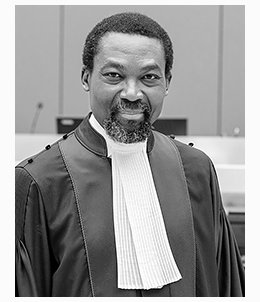 In this episode Tom Dannenbaum, a professor of international law and Co-Director of the International Law and Governance Center at The Fletcher School of Law & Diplomacy at Tufts University, discusses his work on the war crime of intentional starvation of civilians as a method of warfare. We begin with an analysis of the proper interpretation and operation of the prohibition on starvation as a method of warfare in International Humanitarian Law, as provided for in the Additional Protocols to the Geneva Conventions and customary international law, and how this prohibition applies in the context of an encirclement siege, and how it relates to military necessity and the principle of distinction. We then turn to his contribution to the discourse on the best interpretation of the criminal prohibition in the Rome Statute. This involves a discussion of how best to understand the term “method of warfare,” what precisely constitutes the actus res of the crime, what is the nature of the intent that is required, and what the underlying wrong is said to be – and Tom’s claim that the incremental and drawn-out process of starvation and deprivation, far from being a mitigating factor, is precisely what makes the crime distinct, and informs how we should think about the actions that are prohibited. Finally, we turn to discuss the issue of the current siege of Gaza, informed by this theoretical analysis of how the relevant IHL and ICL prohibitions operate.
In this episode Tom Dannenbaum, a professor of international law and Co-Director of the International Law and Governance Center at The Fletcher School of Law & Diplomacy at Tufts University, discusses his work on the war crime of intentional starvation of civilians as a method of warfare. We begin with an analysis of the proper interpretation and operation of the prohibition on starvation as a method of warfare in International Humanitarian Law, as provided for in the Additional Protocols to the Geneva Conventions and customary international law, and how this prohibition applies in the context of an encirclement siege, and how it relates to military necessity and the principle of distinction. We then turn to his contribution to the discourse on the best interpretation of the criminal prohibition in the Rome Statute. This involves a discussion of how best to understand the term “method of warfare,” what precisely constitutes the actus res of the crime, what is the nature of the intent that is required, and what the underlying wrong is said to be – and Tom’s claim that the incremental and drawn-out process of starvation and deprivation, far from being a mitigating factor, is precisely what makes the crime distinct, and informs how we should think about the actions that are prohibited. Finally, we turn to discuss the issue of the current siege of Gaza, informed by this theoretical analysis of how the relevant IHL and ICL prohibitions operate.
Materials:
– “Siege Starvation: A War Crime of Societal Torture,” 22 Chicago Journal of International Law (2022).
– “Criminalizing Starvation in an Age of Mass Deprivation in War: Intent, Method, Form, and Consequence,” 55 Vanderbilt Journal of International Law 681 (2022).
– “The Siege of Gaza and the Starvation War Crime,” Just Security, Oct. 11, 2023.
Reading Recommendations:
– Naz Modirzadeh, “Cut These Words: Passion and International Law of War Scholarship,” 61 Harvard International Law Journal 1 (2020).
– Bridget Conley, Alex de Waal, Catriona Murcdoch, and Wayne Jordash, eds., Accountability for Mass Starvation: Testing the Limits of the Law (2022).
– Carsten Stahn, Justice as Message (2020).
 In this episode, I speak with
In this episode, I speak with  In this episode I speak with
In this episode I speak with